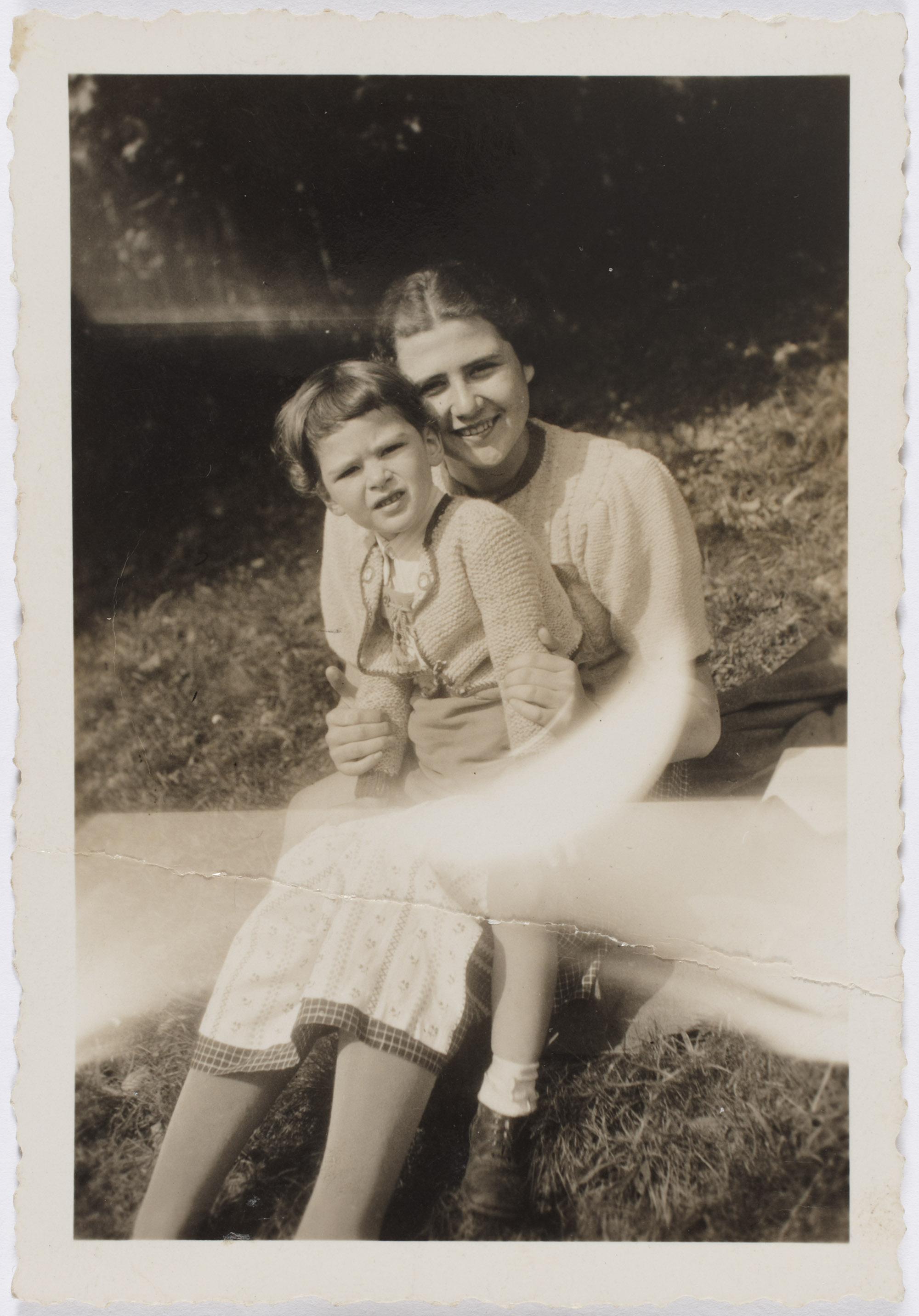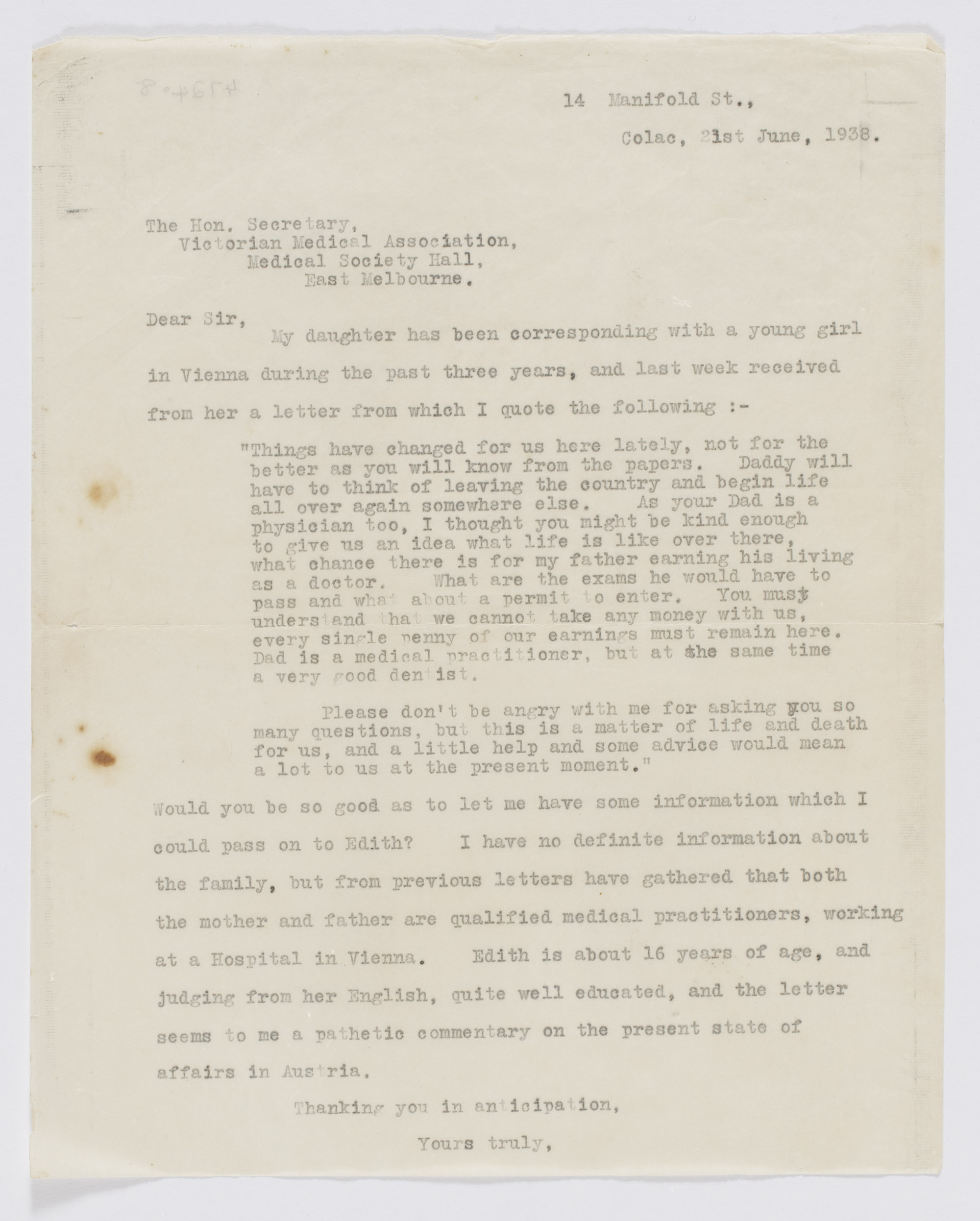An examination of letters between two young pen-pals in the 1930s reveals some Australians were at odds with the government’s harsh attitude towards Jewish refugees.
Personal letters between two young pen-pals have helped researchers understand Australia’s historical attitude towards refugees. The letters, held by the Jewish Museum of Australia, were studied by Professor Joy Damousi from the School of Historical and Philosophical Studies at the University of Melbourne.
In June 1935, Edith Roll, a 13-year-old Jewish girl from Vienna, Austria, wrote to her Australian pen-pal, Jean Doig, aged 10, who lived in the small country town of Colac. Their correspondence lasted only a few years, until Edith and her family were swept up in the violence and destruction of the Holocaust. The letters show that Jean’s parents tried but failed to help the Roll family escape Europe before World War II.

Most research into the history of migration focuses on the actions of governments, and the perspectives of welfare organisations and churches. By looking at personal documents – particularly those containing the voice of children – Professor Damousi has helped create a more complete history of Australian attitudes towards refugees.
The letters show that as the political situation in late 1930s Austria became more dangerous for Jewish people, Edith’s and Jean’s parents took over the correspondence. The girls’ fathers, Keith Doig and Jakob Roll, were doctors. This connection led the Doig family to apply to the government for permission for the Roll family to enter Australia.

By placing the letters into a historical context, Professor Damousi showed how the Doig family’s actions contrasted with the official policies at the time. The Australian Government viewed Jewish people as ‘undesirable immigrants’ and would not give them special consideration to migrate to Australia. The Australian medical establishment excluded doctors seeking refuge from Europe and worked with state governments to pass laws restricting registration by foreign doctors.
The Doig’s efforts were ultimately futile. Edith’s parents died in Nazi concentration camps and the fate of her brother is unknown. Edith made it to London, and then to the USA in 1939, where she became a nurse. She died in 1971 at the age of 49.
This research was part of a larger project, Child Refugees and Australian Internationalism: 1920 to the Present. The research team on the project included three early-career researchers who are former child refugees from Sri Lanka, Vietnam and Sudan. As both researchers and witnesses, they provide unique knowledge and experience when interpreting the history of refugees in Australia.
Next steps
Professor Damousi and her team are comparing the findings from this research and other work on child refugees in Australia with the experiences of refugees today to better understand how attitudes and policies have changed. The team’s findings are available to governments and organisations that develop refugee policies.
Funding
ARC Kathleen Fitzpatrick Australian Laureate Fellowship
Child Refugees and Australian Internationalism: 1920 to the Present (FL140100049)
Publication
Damousi J (2019) Out of ‘common humanity’: Humanitarianism, compassion and efforts in Australia to assist Jewish refugees in the 1930s, Australian Historical Studies, 50(1): 81–98, doi: 10.1080/1031461X.2018.1541096
Images: Reproduced courtesy of the Jewish Museum of Australia
Correspondence between the Doig and Roll families, 1/6/1938, Austria
Edith Roll and her brother Fritz, 1938, Austria
Letter to the Victorian Medical Society (Doig and Roll correspondence), 21/6/1938, Australia
Re-use this text
Please use the text of this article for your own purposes. The text is licensed under the Creative Commons Attribution (CC BY) 4.0 International license. This lets you copy, transform and share the text without restriction. We appreciate appropriate credit and links back to this website. Other content on this page (such as images, videos and logos) is not covered by the CC BY license and may not be used without permission from the copyright holder. If you have any questions about using this text, please contact the research web team.
Banner image: ''Please don't be angry with me, for asking you so many questions, but this is a matter of life and death for us …'' writes Edith Roll, 1 June 1938.
First published on 11 March 2022.
Share this article
Keep reading
-
Pursuit: Learning from the past: Working with WWII refugees
In the aftermath of World War II, Australian woman Esma Banner travelled to Germany to work with the UN in resettling the millions of post-war refugees.
-
Pursuit: Growing up Greek in Australia
Award-winning Australian historian Professor Joy Damousi shines a light on the immigrant experience for refugees of a bygone era
-
Archives
Archives personalise history and enrich our understanding of the world. Explore materials including photographs, letters, manuscripts, maps, films and more.